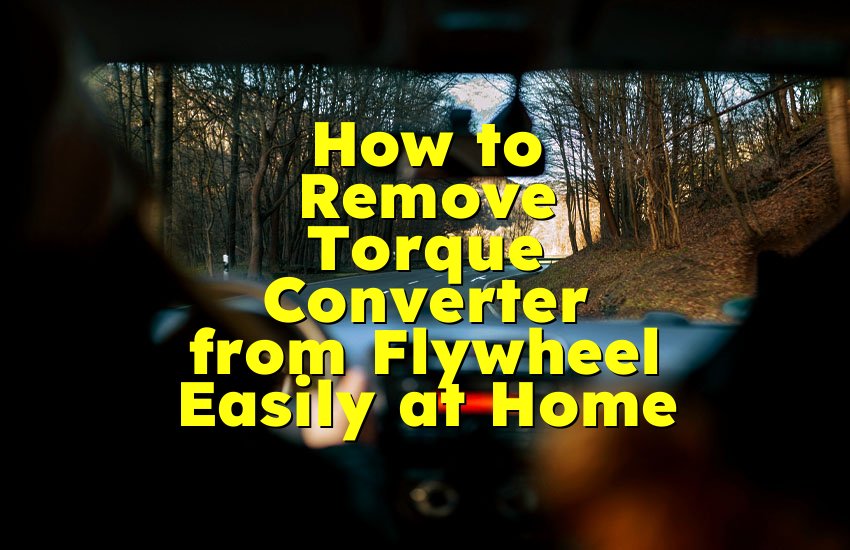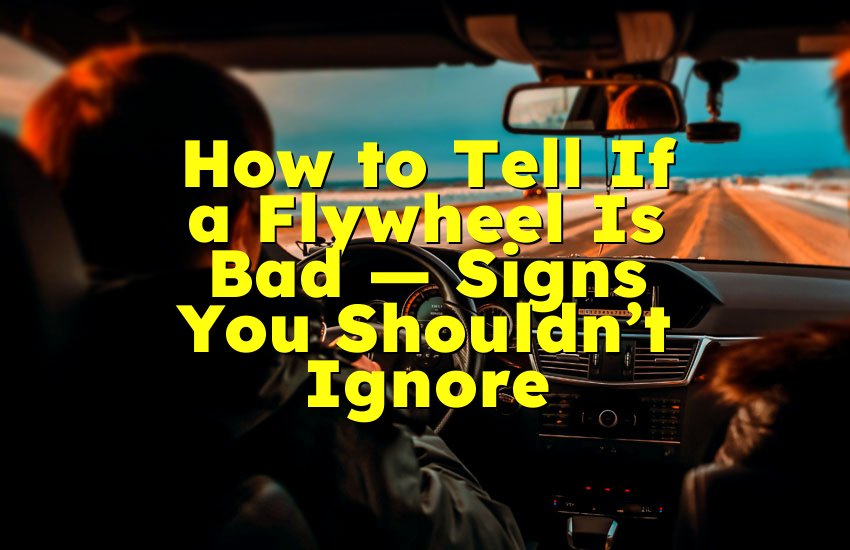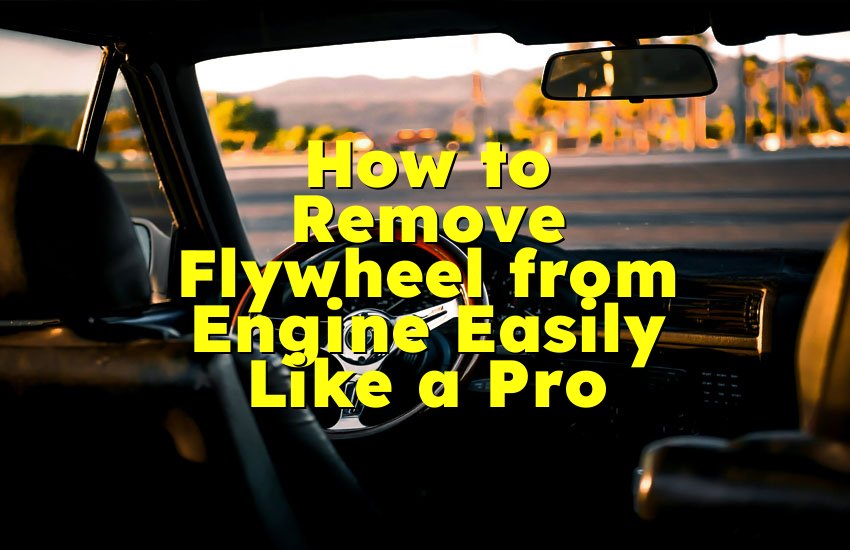As an Amazon Associate, I earn from qualifying purchases at no extra cost to you.
How to Tell if Car Air Filter Needs Replacing: Expert Guide
Have you ever wondered if your car's air filter needs changing but didn't know how to check? I've been there, feeling confused and unsure. The good news is, there are simple signs to tell when it's time to replace your air filter. In this article, you'll learn clear ways to spot when your car air filter needs replacing so your car runs better and saves fuel.
Look for Poor Engine Performance and Reduced Power
One of the easiest ways to tell if your car air filter needs replacing is by noticing how your engine feels when you drive. A dirty or clogged air filter blocks the flow of clean air into the engine. This makes the engine work harder and reduces its power. You may feel your car struggles to speed up, or it just doesn't respond the same when you press the gas pedal.
When air can't flow well, the engine gets less oxygen needed to burn fuel properly. This causes poor combustion, meaning the engine can't make full power. You might find your car takes longer to accelerate or even slows down on hills. In some cases, the engine may also run rough or hesitate during driving.
Besides reduced power, a dirty air filter may cause the engine to stall or have trouble starting. This happens because the engine doesn't get the air it needs to run smoothly. If you notice any of these signs, it's a clear indication that your air filter may be dirty and needs replacing.
- Your car feels slow when accelerating
- The engine runs rough or hesitates
- The car struggles to climb hills or maintain speed
- You notice trouble starting or engine stalls
Check the Air Filter by Removing and Inspecting It
Another direct way to know if your car air filter needs replacing is by checking it yourself. Most cars have an air filter box under the hood that is easy to open. Usually, it's held by clips or screws, so you just open the box and take out the air filter.
Look closely at the air filter. If it is covered in dirt, dust, leaves, or dark spots, it's time to change it. A clean air filter will be mostly white or light-colored with only a little dust on it. If you see black or brown clumps or if the filter feels thick with dirt, that means it is clogged.
If you are not sure, try holding the filter up to a bright light or sunlight. If very little light passes through, the filter is blocked and needs replacing. Also, if the filter material looks torn or damaged, don't wait to change it.
Checking your air filter regularly every few months or at least twice a year is a great way to keep your car running well. It's a simple task and helps you avoid bigger engine problems later on.
- Locate and open the air filter box
- Take out the air filter and look at it carefully
- Replace if it's dirty, clogged, torn, or damaged
- Hold it up to light to check how blocked it is
Notice an Increase in Fuel Consumption or Poor Mileage
A very clear sign your car air filter might need replacing is when your gas mileage suddenly drops. When the air filter is dirty, the engine doesn't get enough clean air. This causes the engine to use more fuel to try to keep power. So, you will spend more money on gas, and your car won't go as far on a full tank.
You might not notice this change right away, but if you keep track of your fuel usage and suddenly see that you're filling up more often, it's worth checking your air filter. A clogged air filter forces the engine to work inefficiently, which burns fuel faster than normal.
Also, poor air flow can cause the engine to run richer, meaning it burns more fuel than necessary. This not only wastes gas but can increase harmful emissions, polluting the environment. Changing your air filter regularly is a cheap way to improve your car's fuel efficiency.
If you start seeing a big difference in how often you fill your tank or how far your car goes, don't ignore it. Check the air filter to avoid wasting money and harming your engine.
- Sudden drop in fuel mileage or higher fuel consumption
- More frequent stops at the gas station
- Engine runs inefficiently and wastes fuel
- Increased pollution from rich fuel burning
Pay Attention to Strange Engine Sounds or Smells
Your car tells you a lot through sounds and smells. When the air filter is dirty, it can cause some unusual noises or odors from the engine. One common sound is a coughing or popping noise when you accelerate. This happens because the engine is not getting the right mix of air and fuel.
You might also notice a strange smell like fuel or exhaust inside the car. This can be a sign the engine is running rich, burning more fuel than it should. A clogged air filter stops enough air from reaching the engine, which causes incomplete fuel burning.
Sometimes, you could smell dust or dirt coming from the air vents when you turn on the AC or heater. This means the filter is not cleaning the air properly. A dirty air filter can also let harmful dust and debris into the engine, which can cause damage over time.
Listening carefully to these signs can help you catch problems early before they get worse. If your car sounds different or smells strange, inspect the air filter and replace it if needed.
- Engine makes coughing, popping, or rough sounds
- Strange fuel or exhaust smell inside the car
- Dusty or dirty smell from air vents
- Engine runs unevenly or rough
Look for Warning Lights on Your Dashboard
Modern cars come with sensors that monitor the engine and air intake system. When there is a problem with air flow, the check engine light or service engine soon light may turn on. This light warns you that the engine is not working properly.
A dirty air filter can trigger this warning because it changes the amount of air the engine receives. The car's computer detects the difference and turns on the light. If you see the check engine light, don't ignore it. It's a good idea to check the air filter as one of the possible causes.
Of course, the light could mean other engine problems, but the air filter is one of the easiest things to check. If you change the air filter and the light stays on, then you should have the car checked by a mechanic.
Regular maintenance, including air filter replacement, helps keep these warning lights off. Don't wait until the light comes on—check your air filter as part of routine car care.
- Check engine or service light comes on
- Engine air flow sensor detects poor air intake
- Replace air filter if dirty, then see if light goes off
- If light stays on, get a mechanic to check further
Follow Manufacturer's Recommended Replacement Schedule
Every car maker gives advice on how often to replace your air filter. This is usually found in your owner's manual or service booklet. Following this schedule is a smart way to keep your car running well without guessing.
Most cars recommend changing the air filter every 12,000 to 15,000 miles or about once a year. However, if you drive in dusty or dirty conditions often, you may need to replace it more frequently. Checking the filter regularly helps you decide if it needs to be changed sooner.
Even if your car seems to run fine, don't ignore the recommended schedule. Over time, the air filter gets clogged with tiny dirt particles that you may not see. Changing it on time protects the engine and keeps fuel efficiency high.
Some new cars have electronic air filter monitors, but most don't. So, it's up to you to keep track of the miles and check the filter regularly. Staying on top of this simple task can save you money and keep your car healthy.
- Follow owner's manual air filter change schedule
- Replace every 12,000 to 15,000 miles or yearly
- Replace more often if driving in dusty conditions
- Regular checks prevent engine damage and save fuel
Final Thoughts
Knowing how to tell if your car air filter needs replacing is simple once you know the signs. Pay attention to engine power, fuel use, sounds, smells, and dashboard lights. Checking the filter yourself and following your car's schedule keeps everything running smoothly. A clean air filter saves fuel, protects the engine, and helps your car breathe better. Don't wait until big problems start—change your air filter regularly and enjoy a healthier, stronger car.
| What to Watch For | Why It Matters | What to Do |
|---|---|---|
| Poor engine power or slow driving | Engine starved of air, less power | Check and replace air filter |
| Dirty or clogged air filter | Blocks air flow to engine | Remove and inspect filter |
| Increase in fuel consumption | Engine burns more fuel | Check air filter and replace |
| Strange engine sounds or smells | Poor air-fuel mix causes issues | Inspect filter and clean or replace |
| Check engine warning light | Engine sensors detect air problems | Check air filter, fix or replace |
| Follow replacement schedule | Prevents problems before they start | Change filter as per manual |
Frequently Asked Questions (FAQs)
Is it normal for my car to lose power if the air filter is dirty?
Yes, it's normal. A dirty air filter blocks the airflow needed for the engine to work properly. Without enough air, the engine can't burn fuel efficiently, causing a loss of power. You'll notice the car feels sluggish or slow to accelerate. Replacing the dirty air filter usually fixes this problem and restores the engine's normal power.
Can a dirty air filter cause my car to use more fuel?
Absolutely. When the air filter is clogged, the engine doesn't get enough clean air. This causes it to burn fuel inefficiently, using more gas than usual. You may find yourself filling the tank more often. Changing the air filter can improve fuel economy and save you money at the pump.
Do I need special tools to check my car's air filter?
No special tools are usually needed. Most cars have an easy-to-open air filter box held by clips or screws. You can open it by hand or with a simple screwdriver. Then, just take out the filter and look at it. If it's dirty or blocked, replace it. Checking the filter yourself is easy and saves you a trip to the mechanic.
Is it okay to drive with a dirty air filter?
It's not a good idea. Driving with a dirty air filter reduces engine power, wastes fuel, and can cause engine damage over time. Dust and dirt can enter the engine, causing wear and tear. It's better to replace the air filter as soon as you notice it's dirty to keep your car running well.
Can a clogged air filter cause the check engine light to come on?
Yes, it can. The car's sensors monitor airflow to the engine. If the air filter is clogged, the sensors detect a problem and may turn on the check engine light. While the light can mean other issues too, a dirty air filter is one of the most common causes. Check and replace the filter if needed.
Do I have to replace the air filter every year?
Not always, but it's a good rule of thumb. Most manufacturers recommend changing the air filter every 12,000 to 15,000 miles or about once a year. However, if you drive in dusty or polluted areas often, you might need to replace it more frequently. Regular checks help you decide the right time.
Is it hard to replace a car air filter by myself?
No, it's usually very easy. Most air filters are designed for quick replacement. You just open the air filter box, take out the old filter, and put in a new one. No special skills or tools are needed. If you're unsure, you can watch videos or ask for help, but it's one of the simplest car maintenance tasks.
Can a new air filter improve my car's overall performance?
Definitely. A clean air filter allows the engine to breathe properly, improving power, acceleration, and fuel efficiency. It also reduces emissions and protects the engine from dust and dirt damage. Replacing an old, dirty filter with a new one can make your car run smoother and last longer.











